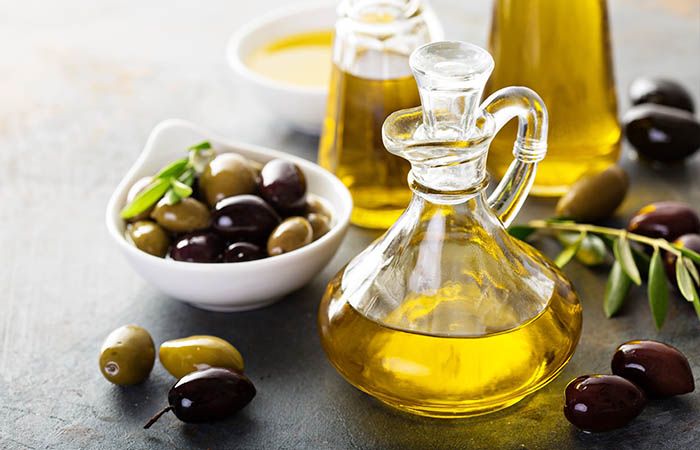Categories
The latest content
-

Customs Clearance & Import Regulations for Bulk Iranian Pinto Beans in EU, Middle East & Africa
..
-

Quality Control & Laboratory Testing Standards for Iranian Pinto Beans
..
-

Logistics & Shipping Solutions for Bulk Iranian Pinto Bean Exports
..
-

Minimum Order Quantity (MOQ) & Bulk Pricing for Iranian Pinto Bean Buyers
..

Tags
Customs Clearance & Import Regulations for Bulk Iranian Olive Oil in EU, Middle East & Africa; Compliance Guide for Importers

Importing bulk Iranian olive oil into global markets requires more than just securing the right supplier — it demands strict adherence to customs clearance procedures, import regulations, and trade compliance. For buyers in the European Union, Middle East, and Africa, understanding these requirements ensures smooth shipments, zero delays, and reduced costs.
At Tamila Agrifood Company, we provide our international clients with expert guidance on navigating customs laws and food import regulations, ensuring that our premium Iranian olive oil reaches destinations without complications.
1. Customs Clearance for Olive Oil Imports; Why It Matters?
Customs clearance is the process of ensuring imported goods meet the legal, health, and safety standards of the destination country. For olive oil imports, this involves:
• Submitting the correct documentation.
• Complying with tariff codes and import duties.
• Meeting food safety, labeling, and packaging standards.
• Passing laboratory testing and quality inspections.
Efficient customs clearance prevents costly shipment delays, demurrage charges, and rejections at the border.
2. EU Import Regulations for Iranian Olive Oil
The European Union has some of the strictest food import laws worldwide. Importers of Iranian olive oil must ensure compliance with:
• Tariff Codes (HS Code 1509): Governing virgin and refined olive oil.
• EU Food Safety Regulations (EFSA): Covers pesticide residue, heavy metals, and microbiological safety.
• Labeling Requirements: Must include origin (“Product of Iran”), nutritional information, batch code, and expiration date.
• Certificates Required:
o Health Certificate from the Iranian Ministry of Agriculture.
o Laboratory Test Reports proving compliance with EU limits.
o Organic Certification (for buyers targeting premium markets).
Failure to meet these can result in border rejection or destruction of goods.
3. Middle East Import Regulations for Iranian Olive Oil
The Gulf Cooperation Council (GCC) countries (UAE, Saudi Arabia, Qatar, Kuwait, Bahrain, Oman) and other Middle Eastern markets import large volumes of Iranian olive oil. Their key requirements include:
• Halal Certification: Mandatory for all food imports.
• GSO Standards: Gulf Standardization Organization regulations on edible oils.
• Labeling in Arabic & English: Including shelf life, nutritional data, and storage conditions.
• Import Licenses: Some countries require importers to hold food import licenses.
Countries like the UAE act as re-export hubs, so compliance with GCC rules ensures access to wider regional markets.
4. African Import Regulations for Olive Oil
African markets are growing rapidly, especially in North Africa (Egypt, Morocco, Algeria, Tunisia) and Sub-Saharan Africa (Nigeria, Kenya, South Africa). Importers must prepare for:
• Local Food Safety Authority Approvals: Each country has different regulatory bodies.
• Customs Duties & Tariffs: Vary between countries; some apply preferential tariffs for trade agreements.
• Packaging & Labeling Rules: Some African nations require French or local language labeling.
• Quality Testing: Random inspections for authenticity and adulteration prevention.
5. Documentation Checklist for Bulk Olive Oil Imports
To ensure smooth clearance, buyers should prepare:
• Commercial Invoice (with HS Code, value, origin).
• Packing List (weight, volume, packaging details).
• Certificate of Origin (issued in Iran).
• Phytosanitary/Health Certificate (for food safety compliance).
• Laboratory Test Reports (acidity, peroxide, contaminants).
• Halal & Organic Certificates (if required by market).
• Bill of Lading / Airway Bill (depending on shipping method).
6. Common Challenges in Olive Oil Customs Clearance
• Delays due to incomplete paperwork.
• Mismatch in labeling requirements (e.g., missing Arabic translation in GCC).
• Random lab testing delays in EU ports.
• Tariff misclassification under HS Codes.
• Adulteration concerns leading to rejected shipments.
Partnering with experienced exporters like Tamila Agrifood Company helps importers avoid these costly mistakes.
7. Role of Tamila Agrifood Company in Compliance Support
At Tamila Agrifood, we assist our partners with:
• Pre-shipment laboratory testing & certification.
• Guidance on destination-specific labeling.
• Providing all documentation in advance.
• Coordinating with customs brokers & freight forwarders.
• Ensuring smooth clearance in EU, GCC, and African ports.
Conclusion
Navigating customs clearance and import regulations for bulk Iranian olive oil requires expertise, attention to detail, and compliance with international standards. The EU, Middle East, and African markets each have unique requirements, but with proper preparation, importers can unlock profitable opportunities in these growing regions.
By working with Tamila Agrifood Company, buyers gain access to premium Iranian olive oil backed by full documentation, certifications, and customs compliance support. We simplify the process so you can focus on growing your business with confidence.
Email: tamilaagrifood@gmail.com
Phone / WhatsApp for Quotations: +989141858935



